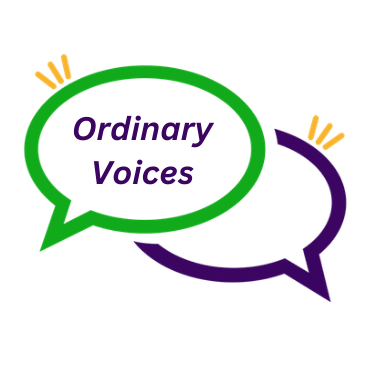We Need To Be Set Free
Photo by Ankush Minda on Unsplash
We Are Slaves To Violence Who Need To Be Set Free
by Eric Elkin
“They responded, “We are Abraham’s children; we’ve never been anyone’s slaves. How can you say that we will be set free?”
All Jews, Muslims, and Christians trace the roots of their faith back to Abraham. That means roughly 4.1 billion people can say, "We are Abraham's children." Yet, not all can say, "we have never been anyone's slave." Not even the ones speaking in the Gospel of John chapter 8.
In the United States, slavery is rightfully seen through the lens of the African slave trade and its residual impact on their ancestors and our culture. Yet, slavery can also be defined as an "excessive dependence on or devotion to something." I would argue as humans, we all have become slaves to violence.
As I write this morning, we are again going through the post-school shooting drama. Reporters act traumatized but can barely conceal their enthusiasm over the rating boost. Politicians on both sides of the aisle will deliver statements that will comfort their support base. But nothing substantive will be done to stop future shootings. As a pastor, I'll be expected to do the "thoughts and prayers" dance. (If I don't say it, I am insensitive. If I defend the power of prayer, I am weak.)
The problem in our country is not guns. It is our devotion to them. Actually, guns are just a manifestation of our true obsession - violence. We have an excessive faith in violence solving our problems. No politician will ever cut military spending. Instead, they will go after Medicare and Social Security because they cause such horrors. No one is suggesting quality dialogue with China; instead, we will build more warships.
“Our deepest freedom rests not in our freedom to do what we want to do but rather in our freedom to become who God wills us to be. ”
It is time to confess we are slaves to violence and must be set free. To be set free, though, is going to be painful. We will need to admit the god we have created is not all-powerful. The god of violence has not made the world better, safer, or more abundant. We may need to consider the impact of the messages we digest.
While meditating on this point, I received a devotion from Richard Rohr. The devotion was an excerpt from the book Mystical Sobriety by James Finely. Finley explores the transformative power of the Twelve Step Program. I found it amazing how Finley put Jesus' words in John into a modern context for those suffering from addiction. He wrote, "if you admit, you live; and if you don't admit, you might die."
I encourage you to consider James Finley's reflection on the Second Step of the Twelve Steps. The Second Step is: "We came to believe that a Power greater than ourselves could restore us to sanity." Finley wrote, "As long as we were still holding on to this ideology of our brokenness as having the final say in who we are, we were not capable of seeing this because we actually had faith in our own brokenness as the power to name who we are."
Our trust in violence is the source of our brokenness. It seeks to claim who we are as people. What a great thing to contemplate as we head into Holy Week. Let us all admit we are slaves to violence. Then listen to the depth which Jesus will go to set us free. Embrace the words, "if the Son makes you free, you really will be free." Then live as a free person helping others discover freedom as well.
Click to read John 8: 31-38
Reflection Questions:
When have you felt an “excessive dependence on or devotion to something” unhealthy?
How were you able to be set free? Or are you still searching for freedom?
How can Jesus set us free?
What does it mean to be Easter people?

















